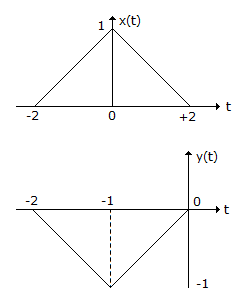Discussion
Home ‣ Electronics and Communication Engineering ‣ Satellite Communication Comments
- Question
The present total cost per watt of power generation in geosynchronous orbit is nearly Rs.
Options- A. 20
- B. 50
- C. 100
- D. 5
- Correct Answer
- 20
- 1. Radio broadcasting is a familiar example of
Options- A. space multiplexing
- B. time multiplexing
- C. frequency multiplexing
- D. none of the above Discuss
- 2. India's first domestic geostationary satellite 1NSAT-IA was launched on 10th April 1982 from
Options- A. USSR
- B. USA
- C. UK
- D. UP Discuss
- 3. A geostationary satellite is one which
Options- A. hangs motionless in space about 36000 km about Earth
- B. travels around the Earth in 24 hours
- C. remains stationary above the Earth
- D. appears stationary to everybody on Earth Discuss
- 4. Rotation of a geosynchronous satellite means its
Options- A. drift from stationary position
- B. wobbling
- C. three-axis stabilization
- D. three-dimensional stabilization Discuss
- 5. Of the four INSAT-I satellites planned by India so for, only __________ has proved to be successful.
Options- A. INSAT-IA
- B. INSAT-IB
- C. INSAT-IC
- D. INSAT-ID Discuss
- 6. A function having frequency f is to be sampled. The sampling time T should be
Options- A.

- B.

- C.

- D.
 Discuss
Discuss
- 7. Two function g1(t) and g2(t) with correlation of 6 has average power of 4 and 5 respectively. The power of g1(t) + g2(t) is
Options- A. 9
- B. 21
- C. 3
- D. 15 Discuss
- 8. If I (s)
 , the final value of i(t) is
, the final value of i(t) is
Options- A. 5A
- B. 12.5 A
- C. 0.05 A
- D. 1250 A Discuss
- 9. The signal defined by the equations f(t) = 0 for t < 0, f(t) = E for 0 ? t ? a and f(t) = 0 for t > a is
Options- A. a step function
- B. a pulse function
- C. a shifted step function originating at t = a
- D. none of the above Discuss
- 10. Let x(t) and y(t) with F.T. x(f) and y(f) respectively be related as shown in figure

Then y(f) is
Options- A.

- B.

- C. -X(f/2)ej2pf
- D. -X(f/2)e- j2pf Discuss
Satellite Communication problems
Search Results
Correct Answer: frequency multiplexing
Correct Answer: USA
Correct Answer: appears stationary to everybody on Earth
Correct Answer: wobbling
Correct Answer: INSAT-IB
Correct Answer:

Explanation:
Sampling frequency must be more than 2f. Therefore  .
.
 .
.
Correct Answer: 21
Explanation:
Power of two correlated signal is P = P1 + P2 +2R1, 2(t).
Correct Answer: 12.5 A
Explanation:

Correct Answer: a pulse function
Explanation:
It is a pulse lasting for t = a.
Correct Answer:

Explanation:
By applying time shifting and scaling property.
Comments
There are no comments.More in Electronics and Communication Engineering:
Programming
Copyright ©CuriousTab. All rights reserved.
